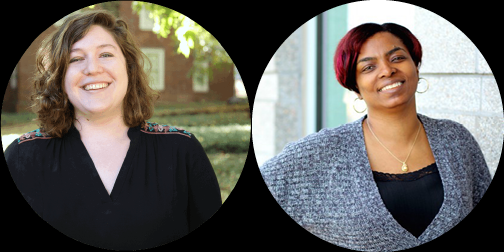
In Tennessee, there are many professionals across the state who dedicate their time and energy to improving the state of disability employment. We interviewed Birtha Street of Empower Tennessee and Rachael Jenkins of Transition Tennessee to see how the work they’re doing is impacting people with disabilities.
Q: Describe the work you and your team do.
Rachael: Transition Tennessee (https://transitiontn.org) is Tennessee’s central hub for training and resources on preparing students with disabilities for life after high school. Our team at Vanderbilt partnered with the Tennessee Department of Education to develop eight training courses focused on key areas of transition. The website launched in January 2017 and we currently have over 4,000 registered users. Beginning this fall, our team has helped three districts establish communities of practice. We are also collaborating with 10 districts to implement in-depth technical assistance and professional development to help improve postsecondary outcomes for students with disabilities. Finally, we are planning a transition conference for January 2019 called “Passport to the Future.”
Birtha: I’m the independent living and employment specialist with Empower Tennessee. Our team serves the Middle Tennessee disability community. My main focus is to assist our consumers with their independent living goals. A big part of independence is employment, so we help our consumers with job readiness.
Q: What is the “why” behind your work?
Rachael: Helping students transition well to adulthood is a primary purpose of special education. It is the reason we invest so much in providing students with disabilities an exceptional educational experience.
Collective investment across many years of schooling should help students with disabilities transition to meaningful work, enable lifelong learning and contribute to a good life in their community.
Birtha: My passion for the disability community and the need that exists to better serve consumers wanting to have a job matches perfectly with my position. I accepted this position because I am part of the disability community – I understand the needs and I want to do my part to bridge the negative gap of employment within our community.
Q: What is one area of disability employment that you are passionate about?
Rachael: Transition is one area of disability employment I feel passionate about, and it’s why I love the work we do with Transition Tennessee. The more students with disabilities have experience in the working world while still in school, the greater the likelihood they will have paid employment after graduating. Helping equip teachers with the supports and resources they need is essential to ensuring students will have the opportunities they need to prepare for employment and postsecondary education.
Birtha: I’m passionate about the lack of understanding employers can have when it comes to hiring people with disabilities. One of the first things I try to do when speaking with employers is offer a better understanding of the benefits of hiring someone with a disability.
Q: What is one of the prominent barriers you’ve seen for people with disabilities seeking employment?
Rachael: Transportation is one of the most prominent barriers we’ve consistently seen for people with disabilities seeking employment. In rural areas, public transportation is often sorely lacking. Even in cities such as Nashville, services can be unreliable. Geographic restrictions, service hours, eligibility processes and fixed routes may rule out job opportunities. Additionally, costs may be too high for a regular commute for individuals living near or below the poverty line. In our work with Transition Tennessee, we’ve seen transportation affect the ability of students to get jobs.
One other major barrier is that far too many people still do not see competitive work as a realistic option for young people with intellectual and developmental disabilities. Raising expectations helps people catch and pursue a vision that everyone has strengths and talents to share in the workplace.
Birtha: The one barrier I encounter the most is willingness. In my opinion, the employer is not willing to take a chance and gain the many benefits from hiring someone with a disability.
Q: Do you envision any solutions to the issues you mentioned above?
Rachael: In recent years, we’ve come a long way in raising expectations for competitive employment for individuals with disabilities. Recent legislation and statewide partnerships are emphasizing the importance of providing work experiences with high expectations for students with disabilities. For example, Governor Haslam established Tennessee as an Employment First state. The order supports the commitment of state partnership agencies to increase competitive, integrated employment. These types of partnerships play a critical role in creating a culture of high expectations.
Birtha: Yes, I do see and believe that there will be a solution one day. For the short-term, I think if people like myself and organizations like Independent Living Centers will keep up “the good fight”, employees with disabilities will be able to find meaningful work.